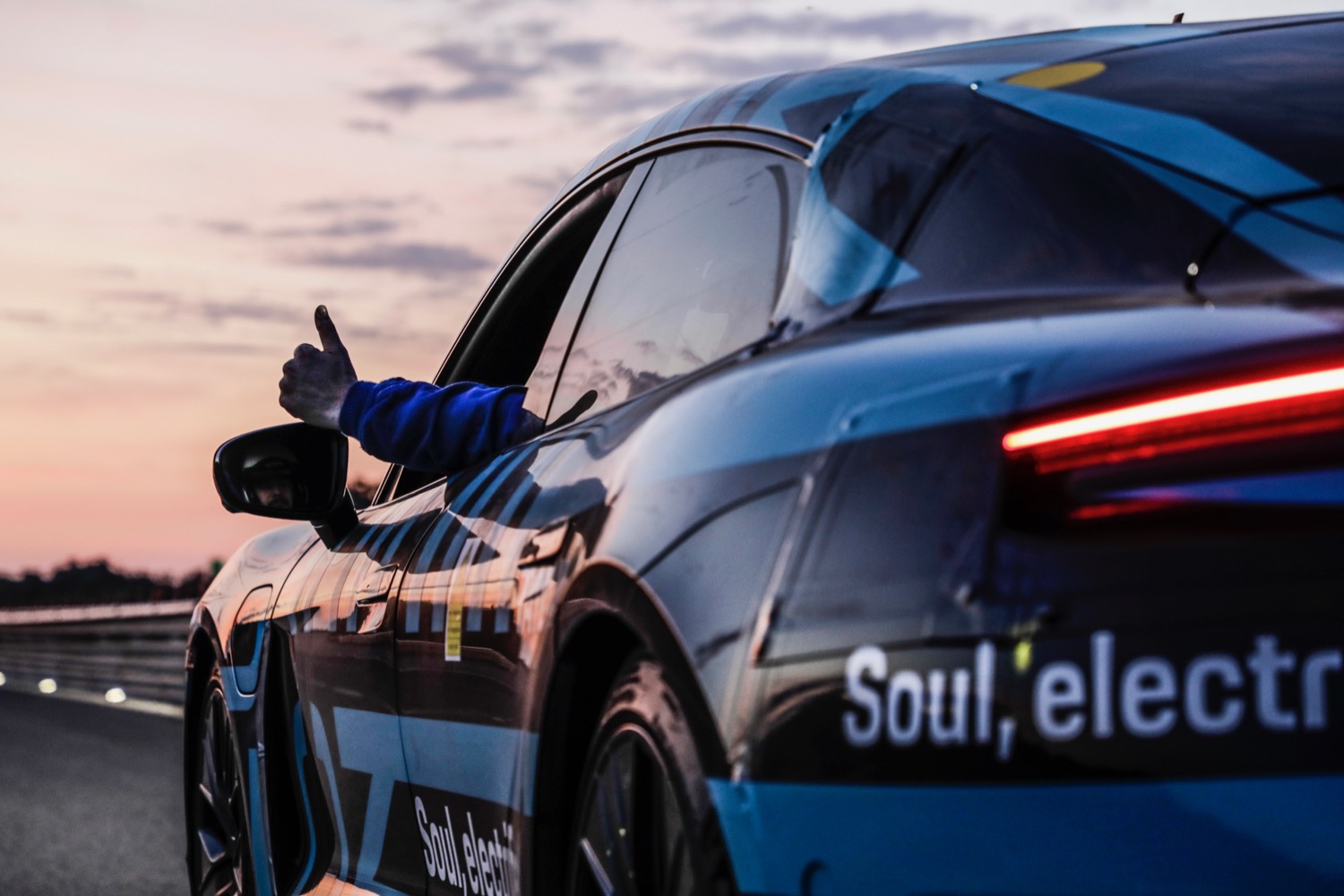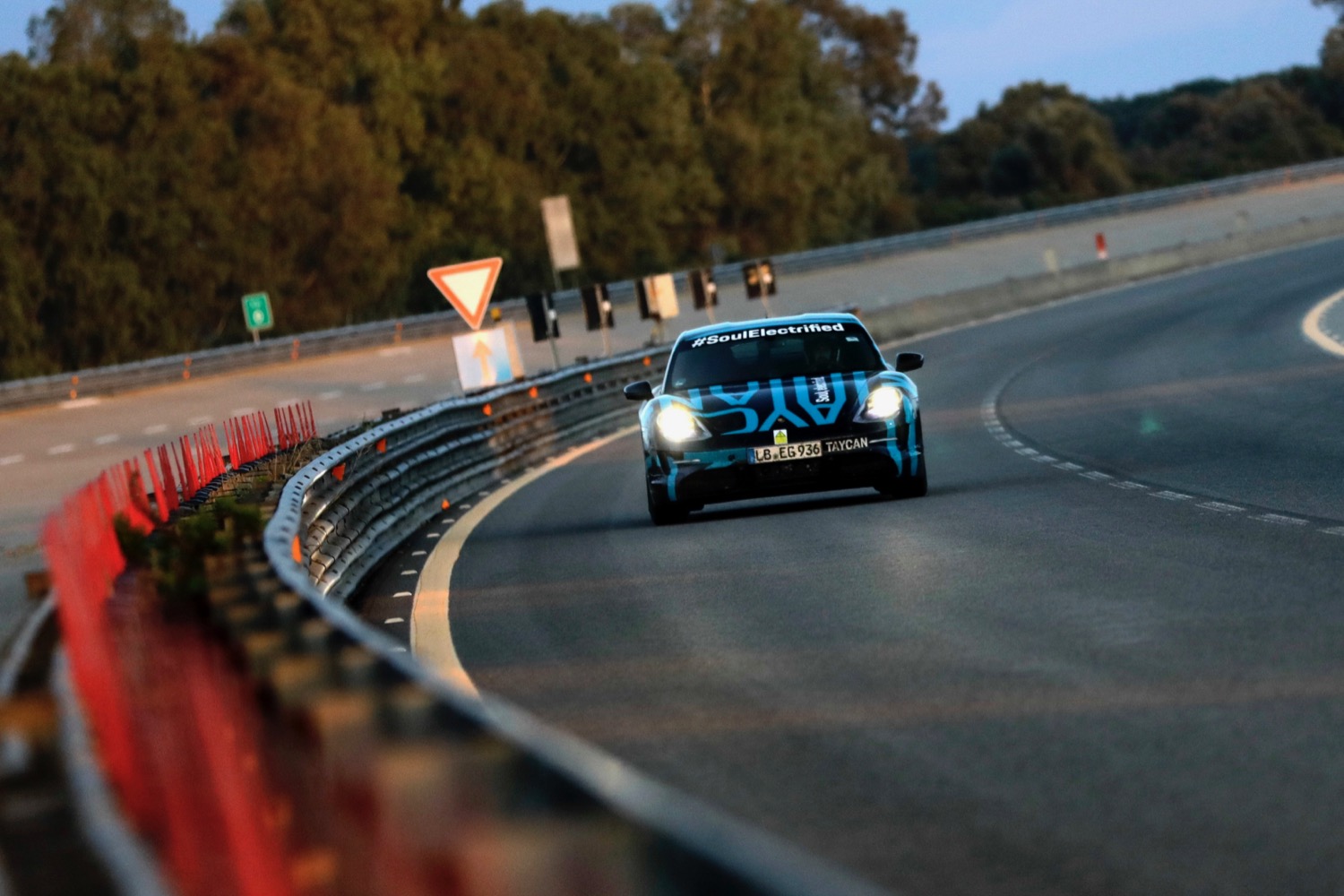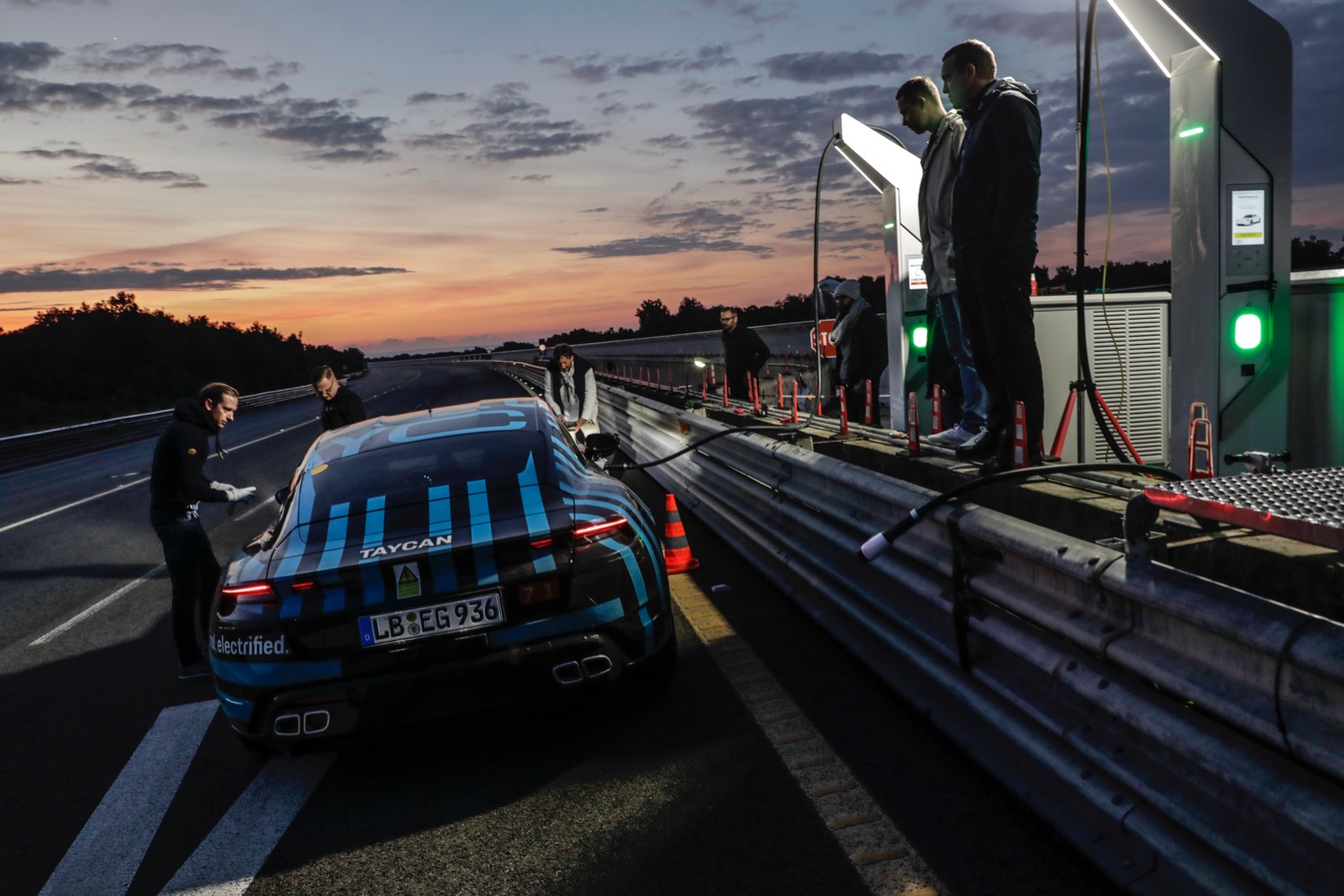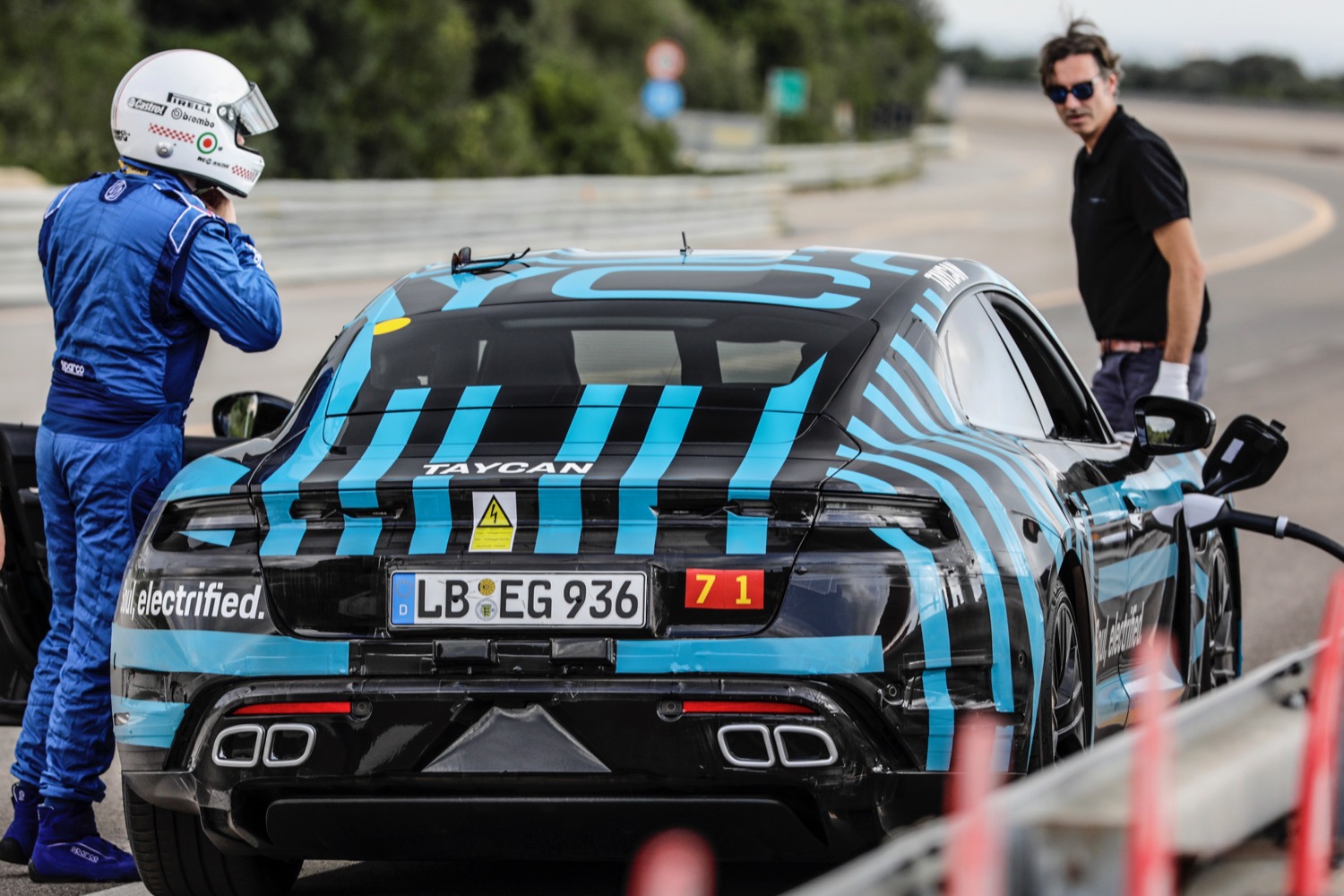Porsche is determined to prove that its Taycan electric car is the real deal. After subjecting a prototype to 26 consecutive acceleration runs, Porsche took a car to Italy’s Nardo test track for a 24-hour endurance run. The Taycan (pronounced “tie-con”) was driven 2,128.1 miles — nearly the same as a drive across the continental United States — in that time. Those miles were not covered slowly.
The Taycan averaged 121 mph to 133 mph throughout the test, according to Porsche. The automaker claimed the car only stopped to recharge and for driver swaps (a team of six drove in shifts). Recharging was done using one of the 800-volt charging stations Taycan owners will be able to use when the car goes on sale. The station was positioned trackside to save time during the test.
Porsche did not say how long a full recharge took, or how many times the car had to stop to charge. For now, all the automaker will say is that the Taycan is capable of recovering 60 miles of range on 4 minutes of charging.
Looking at the average speeds claimed by Porsche, Autoblog determined that the Taycan would have covered 2,904 miles and 3,192 miles if it didn’t have to stop to charge. The difference between those figures and the actual mileage covered indicates how long it took to charge. Using the more conservative estimate of distance covered, Autoblog estimated that the Taycan needed just under 6.5 hours of charging time. The website stressed that this is only an estimate, and noted that a gasoline car would have had to stop several times to refuel in order to maintain those speeds.
In addition to fast charging, Porsche said the Taycan’s thermal management system was crucial to the 24-hour endurance test. The battery pack must be kept at an optimal temperature to operate properly, but high-speed driving generates a lot of heat. Cooling is crucial not only to ensure the car can develop full power, but also allow it to recharge at the maximum rate. The thermal management system works both ways: It can also heat up the battery pack in cold conditions, according to Porsche.
Consistent performance is a priority for Porsche. The automaker recently put a Taycan prototype through 26 consecutive accelerations runs, going from 0 to 124 mph and back to zero. The average time was just under 10 seconds, with a difference of just 0.8 seconds between the quickest and slowest time, according to Porsche. The automaker previously said the Taycan will do 0 to 62 mph in less than 3.5 seconds, and reach a top speed of over 155 mph.
The Porsche Taycan will be unveiled to the public September 4 at the 2019 Frankfurt Motor Show. It will be the first electric Porsche production car, but it won’t be the last. Porsche plans to follow up the sedan with an electric version of its bestselling Macan crossover.
Editors' Recommendations
- Porsche’s most powerful production car is an EV
- The Porsche Taycan falls completely short of the Model S when it comes to range
- Tesla sends a Model S to the ‘Ring to try beating Porsche (Update!)
- Lamborghini’s first EV will be ‘mature’ and based on the Taycan, report says






